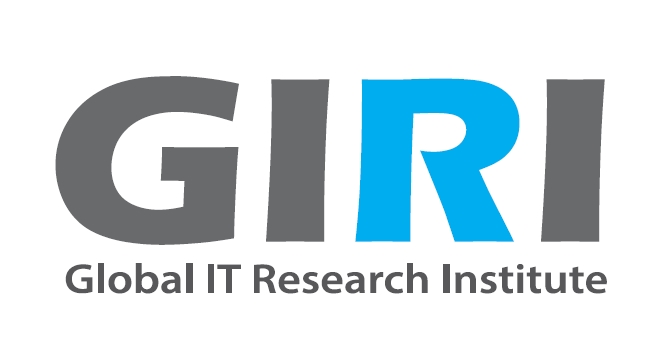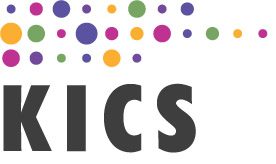Now 987 visitors
Today:4 Yesterday:829
Total: 4516
407S 103P 89R
2026-01-16, Week 3 |
| Member Login |
| Welcome Message |
| Statistics |
| Committee |
| TACT Journal Homepage |
| Call for Paper |
| Paper Submission |
| Find My Paper |
| Author Homepage |
| Paper Procedure |
| FAQ |
| Registration / Invoice |
| Paper Archives |
| Outstanding Papers |
| Author Homepage |
| - Paper Procedure |
| - Journal Procedure |
| - Presentation Tips |
|
| Proceedings |
| Program with Papers |
| Plenary Session |
| Tutorial Session |
|
| Presentation Platform |
| Hotel & Travel Info |
| About Korea |
| Accommodation |
| Transportation |
| VISA |
| Other Infomation |
|
| Photo Gallery |
| Scheduler Login |
| Seminar |
| Archives Login |
|
| Sponsors |

|

|

|

|

|

|

|

|

|

|

|

|
|
|
|
|
|
2025
 |
Title : XPM - eXplainable Process Mining |
|
Time : Feb. 16 (Sun) Afternoon |
|
Speaker : Prof. Kwanghoon Pio Kim, Ph.D. KYONGGI UNIVERSITY, Korea
Kwanghoon Pio Kim is a Full Professor in the Division of AI Computer Science and Engineering as well as the Founder and Supervisor of the Data and Process Engineering Research Laboratory, Kyonggi University, South Korea. At Kyonggi University, he had been the Dean of the Computerization and Informatics Institute from 2017 to 2021; Since 2007, he has been in charge of the Founder and the Director of the Contents Convergence Software Research Institute, where he has been leading and fulfilling a multi-million-dollar research project that will be continuously supported and funded by the National Research Foundation of Korea, from 2020 to 2029. In 2020, the institute was officially designated as the National Science and Engineering Research Institute by the Ministry of Education, South Korea, and it was selected as the Kyonggi’s Representative Research Institute in 2024 by Kyonggi University. He received B.S. degree in computer science from Kyonggi University in 1984. And he received M.S. degree in computer science from Chungang University in 1986. He also received his M.S. and Ph.D. degrees from the computer science department at the University of Colorado Boulder, in 1994 and 1998, respectively.
Abstract : The workflow (and business process) literature has been looking for efficient redesigning and reengineering approaches because of not only that workflow and business process models are becoming massively large-scaled and complicated, but also, nevertheless, that their life-cycle and recycling (redesigning & reengineering) periods are becoming swiftly shorter. As depicted in the teaser-figure, the business process life-cycle management with business process redesign, reengineering, and restructuring approaches is needed to be supported by a process mining system performing the process discovery and rediscovery functionality. The process mining system is based upon the workflow and business process enactment audit and event history traces logged and collected at the runtime of workflow and business process models. In the diagnosis phase of the process life-cycle management, we need a way that can reasonably discover the discrepancy between the original process model as it is built and the enacted process as it is actually executed. The discrepancy can be discovered straightforwardly by the process mining system and eventually become the very valuable knowledge to redesign, reengineer, and reconstruct the original process model for managing its life-cycles effectively and efficiently. In this ICACT2025 tutorial, I introduce a new process mining approach and its implemented system that is selectively amalgamating a group of process event log traces and discovering a series of complete process models from a process enactment event log dataset through a bunch of explainable features provided by the so-called eXplainable Process Mining System. The approach is theoretically based on the typical process modeling methodology of structured information control nets (abbreviated as SICN), and its algorithmic functionality is substantiated by the eXplainable 𝜌-Algorithm and framework that is extended from the original 𝜌-Algorithm that is one of the proven process mining algorithms discovering the underlying SICN-oriented process models from datasets of process enactment event logs and histories. Especially, I would emphasize that the eXplainable Process Mining Approach ought to be very effective and well-fitted for managing the life-cycles of very large-scale business process models.
|
 |
Title : Regional Innovation of Industrial AI Transformation(AIX) |
|
Time : Feb. 16 (Sun) Afternoon |
|
Speaker : Prof. KWON YEONG-IL, PhD. Dean of Graduate School of MOT, Hoseo University, Korea
Kwon Yeong-il is currently a Professor at the Graduate School of Management of Advanced Technology at Hoseo University, South Korea. He received the M.Sc. degree from the Department of Computer Science, KAIST (Korea Advanced Institute of Science and Technology) in 1998 and the Ph.D. degree in the Department of IT Service Management from Soongsil University in 2015.
Dr. Kwon made a lot of contributions to the national ICT services while serving as a General Director at the National Information Society Agency, so called NIA for implementing e-Government, Big data and AI, Open Government Data for many years. He was also a Member of the Big data Policy Committee on National Tax Agency and National Statistics Agency. He has published many books and articles on Big data, Global management of technology, etc. His research interests include big data, platform business, mobile edge computing and smart factory
Abstract : : AI Transformation (AX) requires establishing a strategic direction to innovate manufacturing industry and service innovation with the adaptation of AI technology. Industrial digital transformation requires technology innovation that applies AI, cloud computing and IoT in the factories of semiconductor, automobile, and manufacturing companies at the region. Hoseo University is located in Chungnam Province which has many industrial complexes for small and medium-sized businesses (more than 27,000 companies). As one of the cutting-edge technologies in the manufacturing field, cloud computing and AI should be implemented in the ABL (Actual-Task Base Learning) model to solve technical issues in small and medium-sized companies. Conclusively, the concrete goal of this tutorial is aware the intelligent service model for the industrial intelligence in solar power, electric vehicle energy industry sectors and service intelligence such as healthcare, UAM, and virus disinfection to the public.
|
|
|
|
|
ⓒ Copyright 1999. ICACT (ISSN 1738-9445) & Global IT Research Institute(GiRI) All rights Reserved. Contact: office (at) icact . org Tel:+82-70-4146-4991
|
1713 Obelisk, 216 Seohyunno, Bundang-gu, Sungnam Kyunggi-do, Republic of Korea 13591
Business License Number : 220-82-07506, President: Thomas ByeongNam Yoon Ph.D. |
|
(13591)경기도 성남시 분당구 서현로 216 오벨리스크 1713호
(사)글로벌IT연구회 사업자등록번호 : 220-82-07506 대표자 : 윤병남
|
|
| |






